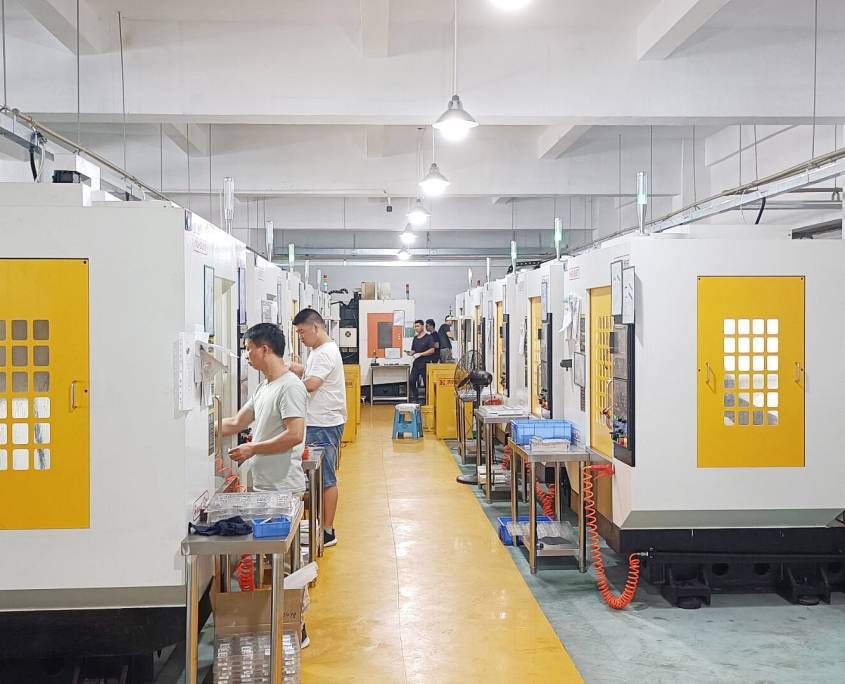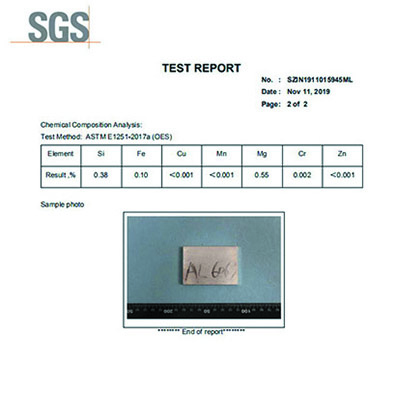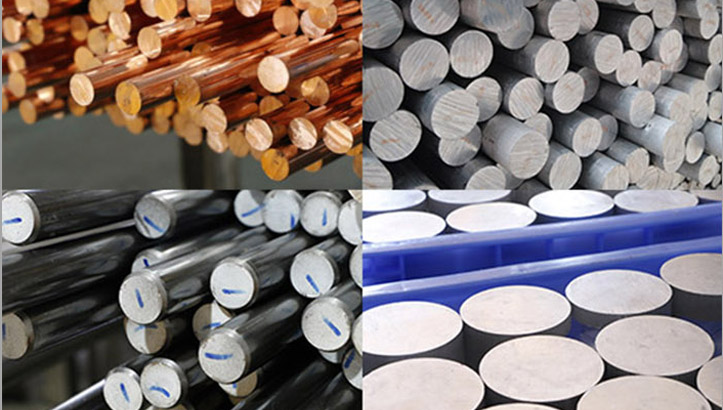How to Find a Reliable CNC Machining Manufacturer?
Finding a reliable CNC machining manufacturer can be overwhelming, with so many options available. Choosing the wrong one can lead to costly delays and poor-quality products. In this article, we will guide you through the process of selecting the right CNC machining manufacturer to ensure the best outcome for your project.
To find a reliable CNC machining manufacturer, consider their experience, certifications, technology, and customer reviews. A trustworthy partner will meet your quality standards, deliver on time, and offer excellent communication. This guide covers the essential factors to help you choose a CNC manufacturer that aligns with your project’s needs.
Let’s explore the key factors you need to assess when selecting a reliable CNC machining manufacturer for your business.
What is a CNC Machining Manufacturer?
A CNC machining manufacturer is a company that specializes in using computer numerical control (CNC) machines to fabricate parts and components for various industries. These manufacturers produce everything from precision automotive components to medical devices, using cutting-edge technology to ensure accuracy and efficiency. CNC machining allows for high-speed, precise, and automated production, which is ideal for both small and large-scale manufacturing needs.

What Makes a CNC Machining Manufacturer Reliable?
Reliability in CNC machining manufacturers is determined by several key factors that ensure the manufacturer can consistently meet your expectations for quality, accuracy, and delivery:
1. Experience:
A manufacturer with years of experience in machining service is more likely to produce high-quality parts consistently. Long-standing manufacturers have refined their processes, invested in technology, and gained a deeper understanding of industry demands. This experience ensures they can handle both standard and complex projects with precision, whether it’s online CNC service or specialized CNC secondary machining services.
2. Certifications:
Certifications are a clear indicator of a manufacturer’s commitment to quality and industry standards. Reliable CNC manufacturers often hold certifications like ISO 9001, IATF 16949, and SGS. These validate their adherence to strict quality control processes, giving you confidence in their CNC machine service and product consistency.
3. Customer Feedback:
Positive customer reviews, testimonials, and case studies offer valuable insights into a manufacturer’s reliability. A proven track record with industries requiring precise CNC machining services highlights their ability to meet deadlines and specifications. References from past clients can further verify their dependability.
4. Technological Capabilities:
The technological capabilities of a CNC machining manufacturer directly impact the quality of the parts produced. Advanced CNC machines, such as 4-axis and 5-axis machining centers, offer superior precision and flexibility. Manufacturers utilizing these advanced technologies can handle intricate designs and varied materials, ensuring excellent results in CNC secondary machining services or custom projects.
5. Quality Control Processes:
Reliable manufacturers implement robust quality control systems to monitor and ensure the quality of every part produced. This includes in-process inspections, final product testing, and the use of CPK (Process Capability Index) to control production precision. This level of quality control is essential for any online CNC service or custom CNC machining services to meet high standards.

6. Delivery Performance:
Meeting delivery schedules is crucial, particularly for industries relying on just-in-time manufacturing. A dependable CNC machining manufacturer will have effective project management systems in place to track production progress and avoid delays, ensuring their CNC machine service supports your timelines.
7. Customer Service and Communication:
Excellent customer service and communication are essential for a strong partnership. Whether you’re engaging in an online CNC service or working on custom machining projects, a manufacturer should be responsive to inquiries, provide regular updates, and proactively address issues. Clear communication ensures alignment from design to delivery.
8. Post-Production Support:
Beyond manufacturing, reliable CNC manufacturers offer post-production support, including assembly, surface treatments, packaging, or logistics. This comprehensive approach ensures success in every stage, complementing their CNC machining services with value-added solutions.
By evaluating these factors, you can identify a CNC machining manufacturer that is not only capable of producing high-quality parts but is also a reliable partner for your machining service needs. This approach ensures consistent quality and on-time delivery, whether for CNC secondary machining services or end-to-end CNC machine service solutions.
What Certifications and Standards Should a Reliable CNC Manufacturer Have?
Certifications play a crucial role in ensuring that a CNC machining manufacturer maintains high standards:
ISO 9001: This certification demonstrates the manufacturer’s adherence to quality management systems, ensuring that their products consistently meet customer and regulatory requirements.
IATF 16949: Essential for suppliers to the automotive industry, this certification guarantees that the manufacturer meets stringent industry-specific quality standards.
SGS: An SGS certification indicates that a manufacturer meets global quality and safety standards.

How Do CNC Machining Manufacturers Make a Difference to Various Industries?
CNC machining manufacturers provide immense value across different industries. For instance:
Automotive Manufacturing: CNC machining ensures precision and speed in producing automotive components such as engine parts and brackets.
Medical Equipment: High-quality, precise machining is critical for medical devices that need to meet strict safety standards.
Industrial Equipment: CNC machining manufacturers create durable parts for industrial machines that require a high degree of accuracy.
Optical and Electronic Technology: In industries where precision is paramount, CNC manufacturers provide critical components for optical and electronic systems.
Each industry benefits from the versatility and precision offered by CNC machining, making these manufacturers vital partners in production.
How to Compare CNC Machining Manufacturers’ Pricing and Delivery Times?
When choosing a CNC machining manufacturer, pricing and delivery times are critical considerations:
Pricing: Compare quotes from multiple manufacturers, taking into account the complexity of the project, materials used, and the required precision.
Delivery Times: Ask about the manufacturer’s lead times and their ability to meet deadlines. Reliable manufacturers should be able to provide accurate delivery schedules and handle urgent orders if necessary.
Cost-Quality Balance: Don’t just choose the cheapest option—evaluate the balance between cost and quality to ensure the best value for your investment.
Advantages and Disadvantages of Using CNC Machining Manufacturers
Like any manufacturing process, CNC machining comes with both advantages and disadvantages. Understanding these can help you decide if it’s the right option for your project:
Advantages:
1. Precision and Accuracy:
CNC machining is renowned for its high precision. With advanced CNC machines, manufacturers can produce parts with tolerances as tight as 0.01 mm.
This level of accuracy ensures that even the most complex designs are executed to perfection, making CNC machining ideal for industries like aerospace, medical equipment, and automotive manufacturing.
2. Speed:
One of the biggest advantages of CNC machining is the speed at which parts can be produced. Automated CNC machines can work continuously, reducing the production time significantly compared to traditional manufacturing methods.
Additionally, rapid prototyping capabilities enable manufacturers to quickly produce functional prototypes, shortening product development cycles.
3. Complexity and Design Flexibility:
CNC machining allows for complex geometries and intricate designs that would be difficult or impossible to achieve using traditional methods. Whether you need multi-axis machining or fine detail work, CNC machines can handle a wide variety of materials and specifications.
4. Material Flexibility:
CNC machining can be utilized with a variety of materials, encompassing metals like aluminum, stainless steel, and titanium, as well as plastics and composites. This versatility in material handling provides manufacturers with the flexibility to select the most suitable material for each specific application, thereby ensuring optimal performance of the end product.

5. Consistency and Quality Control:
Because CNC machines are automated and programmed, they can produce parts with consistent quality throughout the production run. The precision of CNC machining reduces the likelihood of human error, ensuring each part meets the same high standards. Many CNC manufacturers also use CPK control to monitor quality during production, ensuring that parts meet exact specifications.
Disadvantages:
1. Cost:
One of the biggest disadvantages of CNC machining is the high initial cost. CNC machines, particularly multi-axis or high-precision models, require significant investment. Additionally, specialized machinery and tooling may increase the cost of production, especially for small production runs. This can make CNC machining less cost-effective for smaller, simpler parts.
2. Complexity for Simple Parts:
While CNC machining excels at producing complex parts, it may not always be the most cost-effective choice for simpler parts. Traditional methods, such as manual machining or injection molding, may be more economical for producing basic shapes or components in high volumes.
3. Tool Wear and Maintenance:
CNC machines require regular maintenance, and tools may wear out after extended use, leading to additional costs. Depending on the material being machined, the cutting tools may need frequent replacement, which can affect the overall production cost.
4. Setup Time:
Although CNC machining is fast once set up, the setup time for a new part can be time-consuming. The machine needs to be programmed, and tooling must be properly set up to accommodate the specific design. This can lead to delays, particularly for one-off or custom parts.
5. Skill Requirements:
While CNC machines automate much of the process, skilled operators and programmers are still required to ensure that the machines are set up and running correctly. This requires training and expertise, which may increase labor costs.
Discovering a Trustworthy CNC Machining Manufacturer
People have their own ways of finding a reliable CNC machining manufacturer. Here are some of their insights:
Daobin Xie:
It is hard to know if any CNC machine shops are reliable, until you do business with them. My suggestions are listed below for reference:
- Find one shop that we like via the Internet.
- Let them quote one of your projects.
- If the price is OK, get one or a few pieces of samples made, so that you can figure out their quality control level and services.
- If you are satisfied with above step 3, then let them run small volume production for further checking.
- After that, you may find the reliable supplier needed.
In Conclusion
Choosing a reliable CNC machining manufacturer is essential for ensuring the precision, quality, and timely delivery of your parts. By evaluating experience, technology, and customer reviews, you can select a partner that will meet your project’s needs efficiently.
VMT As a Reliable CNC Machining Manufacturer
VMT is a trusted CNC machining manufacturer with over 14 years of experience in providing high-precision custom machining parts. We specialize in industries such as automotive, medical, industrial, optical, and electronic technology, and are committed to meeting our clients’ unique requirements.
Our advanced machinery, including 4-axis and 5-axis CNC centers, ensures that we deliver top-quality parts with precision tolerances as tight as 0.01mm. As an ISO 9001:2005, IATF 16949, and SGS certified company, VMT is the ideal partner for businesses seeking reliable CNC machining services.
Frequently Asked Questions CNC Machining Manufacturer
How do I Get Into CNC Manufacturing?
Start by learning the basics of machining and CNC operations. Enroll in trade schools, online courses, or apprenticeships. Gain hands-on experience with entry-level CNC machines, study G-code programming, and understand material properties.
How do I Choose a CNC Tool?
Choose a CNC tool based on material type, machining operation (e.g., cutting, drilling, milling), and desired precision. Consider tool material (e.g., carbide, high-speed steel) and size, ensuring compatibility with your machine and application.
How Do I Get Started in CNC Programming?
Learn G-code, the programming language for CNC machines. Take introductory courses on CNC software like Mastercam, Fusion 360, or SolidWorks. Practice creating and simulating toolpaths, and gradually work on real-world projects.



